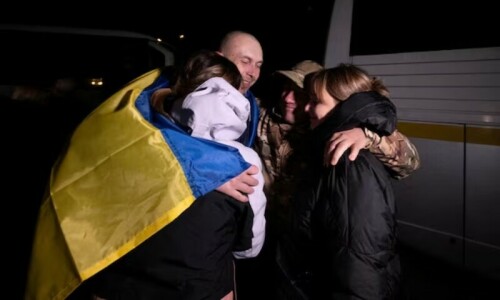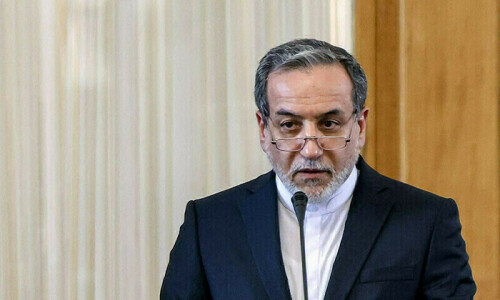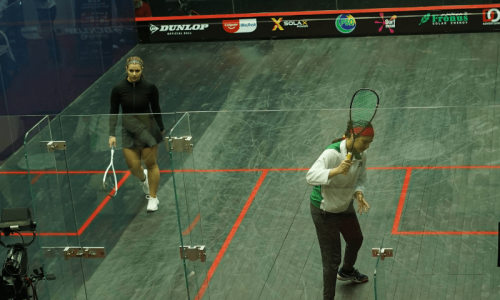North Korea has sent some 10,000 troops to train in Russia, the Pentagon said on Monday, more than tripling the previous estimate as Nato warned of a dangerous expansion of the Ukraine war.
Russia and North Korea have boosted their political and military alliance in the course of the conflict, but the deployment of Pyongyang’s troops into combat against Kyiv’s forces would mark a significant escalation.
“We believe that the DPRK has sent around 10,000 soldiers in total to train in eastern Russia that will probably augment Russian forces near Ukraine over the next several weeks,” Deputy Pentagon Press Secretary Sabrina Singh told journalists, using an abbreviation for North Korea’s official name.
“A portion of those soldiers have already moved closer to Ukraine, and we are increasingly concerned that Russia intends to use these soldiers in combat or to support combat operations against Ukrainian forces in Russia’s Kursk Oblast,” Singh said.
The number of North Korean troops in Russia could grow further “as Putin’s desperation continues to rise”, she said of Russia’s president, whose forces have reportedly suffered hundreds of thousands of casualties in Ukraine.
US National Security Council spokesman John Kirby previously put the number of North Korean troops in Russia at more than 3,000 on October 23, warning that they would become “legitimate military targets” if they fight against Ukraine.
Nato chief Mark Rutte on Monday decried the deployment of North Korean troops to bolster Russia’s war effort in Ukraine as a dangerous expansion of the conflict that signalled Putin’s “growing desperation”.
Experts have said that in return for the troops, North Korea is likely aiming to acquire military technology, ranging from surveillance satellites to submarines, plus possible security guarantees from Moscow.
North Korea and Russia are under UN sanctions — Pyongyang for its nuclear weapons program, and Moscow for the Ukraine war.
Negotiations with Russia ‘necessary’ for resolving war: JD Vance
Meanwhile, US Republican vice presidential nominee JD Vance said that engaging in negotiations with Russia was “necessary” for resolving the Ukraine-Russia war.
Speaking to NBC News for the programme “Meet the Press” that aired on Sunday, Vance said, “I think it’s important if we’re ever going to end the war in Ukraine, fundamentally, at some level, we’re going to have to engage in some sort of negotiation between Ukraine, between Russia, between our Nato allies in Europe.”
He added that it is “just a necessary part”.
Declining to label Russian President Vladimir Putin an “enemy,” Vance said, “I believe he’s clearly an adversary. He is a competitor.”
His comments came in response to moderator Kristen Welker’s question about whether Vance viewed Putin as an ally or an enemy.
He believed that diplomacy required a smart approach, saying, “Just because we don’t like somebody, doesn’t mean that we can’t occasionally engage in conversations with them.”















































